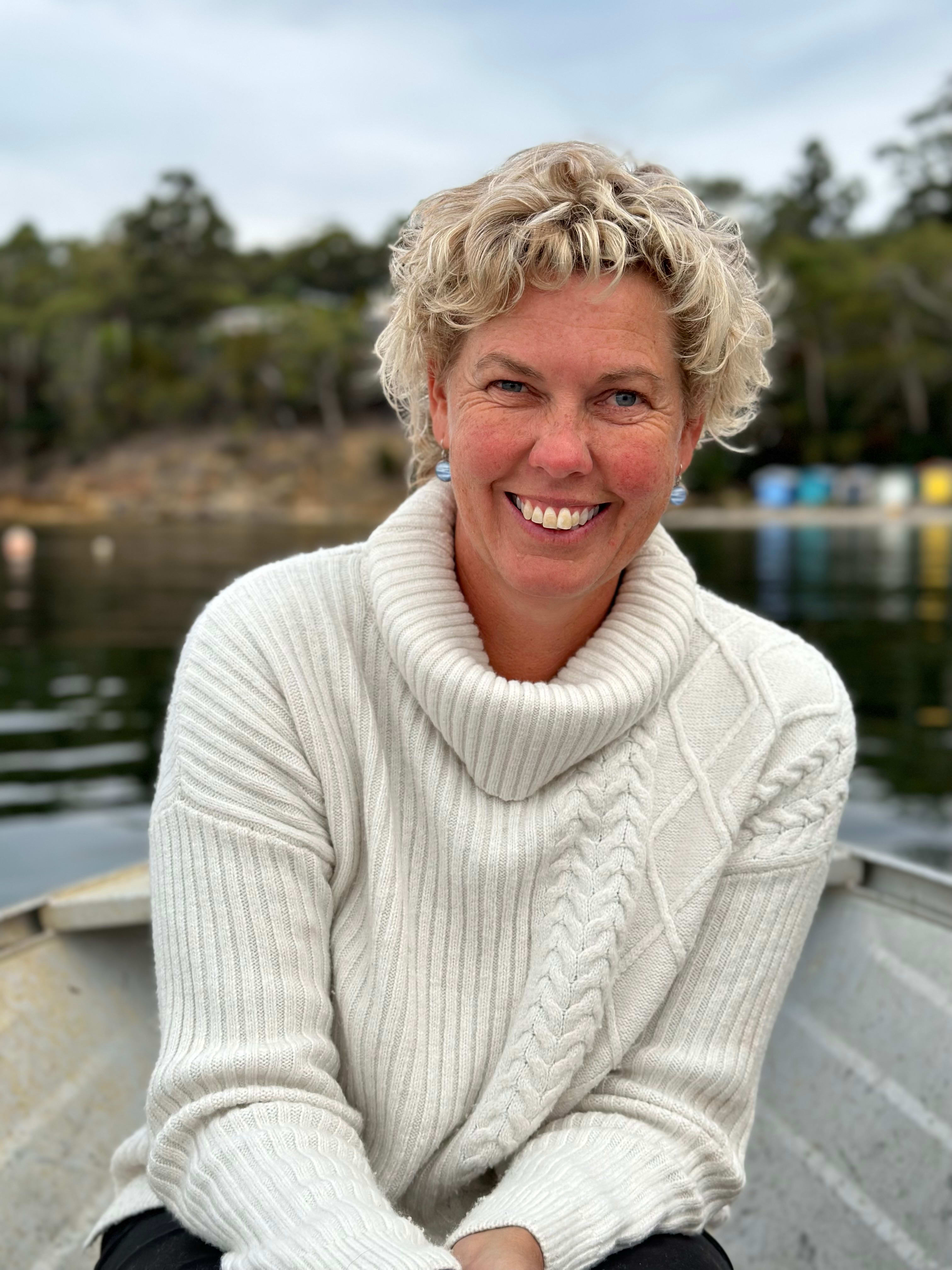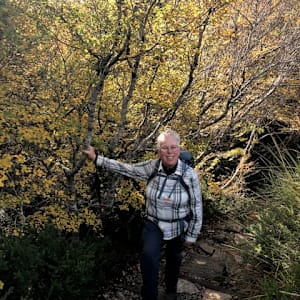Lizzie pulls on her dressing gown as she stands shivering by her bedroom window, the full moon the neighbourhood’s only visitor this bitter winter’s evening. The nocturnal activity that has kept her awake for the past weeks has stopped. She saw the paddy wagon reversing back up the driveway on the stroke of midnight two nights earlier. She saw the woman who drives the fancy car and lives in the big house the other side of the unit complex walking down the driveway and confronting the men that morning. Calmly. Firmly. Powerfully. The men had protested their innocence. Loudly. Irrationally. Guiltily.
The men are guilty, Lizzie knows this. She has watched the visitors for weeks now. Always more on the weekends. Some arriving on foot, some in taxis, some in cars with stereos that thumped a primal beat through her even at midnight. Some addicts, some not. The addicts were not hard to spot, with their jerky, furtive, fearful behaviour. They might as well have been carrying a placard.
Lizzie has never met the men who live in the middle of the three townhouses that border her family home. But she knows they are called Robert and Victor. She knows she likes them, their laughter, their generous banter with the young families living either side of them. And she likes their Burmese cat, Bloom, that Bloomin’ little critter, as the men affectionately call her. Bloom visits Lizzie, and spends the occasional night with her if she manages to evade her keepers, her captors, tapping discreetly on Lizzie’s bedroom window, as if she were an illicit lover.
Robert, Victor and Bloom have been her neighbours for five years now. There had been a time when they had made a handsome family. Lizzie would see the men leaving for work of a morning, one dressed in a shiny suit, the other in smart chinos and a freshly pressed pastel shirt. Along with her owners, Bloom was always impeccably groomed.
Lizzie watches the media reports on the pandemic, reads the newspapers reports on the pandemic, listens to her mother’s incessant talk on the pandemic, to her Aunt Irene’s endlessly uninformed opinions on the pandemic, the language of the pandemic gushing from their mouths like water from a burst main – coronavirus, quarantine, isolation, transmission, AstraZeneca, Pfizer, vaccinations, variants, blood clots, myocarditis, Alpha, Beta, Gamma, Delta – overnight medical experts the two of them. Yes, her mother and aunt are experts on all aspects of the global pandemic, except, of course, the bit where their lives and the lives of their loved ones have been devastated by it.
Now that the lockdown has been lifted, Lizzie’s mother swears that life has never been better. She had wanted Lizzie to join her on a trip around the state, making the most of the cheap accommodation. You must see it, Lizzie-love, before it’s too late, Wineglass Bay, Russell Falls, without the hordes of tourists, without all those foreigners. As if Tasmania in a pandemic is worthy of national heritage status, something that must be protected and treasured.
But it’s this insulation from the pandemic that bothers Lizzie, makes her feel unworthy. For if truth be known, Lizzie has for years embraced the pandemic lifestyle. For she hasn’t willingly left the four walls of her home since the accident. There have been visits to doctors, dentists, psychologists, where a tsunami of cortisol would flood her cerebral cortex, obliterating all rational thought. The pandemic has allowed Lizzie to feel that little bit normal as people embraced her insular lifestyle, where creative home cuisine, home grown produce, the domestic arts of knitting, crochet and macramé began to take on a spiritual status hitherto unknown to the masses of suburbanites who had previously occupied the idle hours of the day in crowded company at shopping malls, festivals, expos.
And, of course, the pandemic had given rise to the online consultation, a godsend to Lizzie. There will have to be a visit to a vaccination clinic at some stage. Perhaps. No point risking a blood clot if you’re staying put. Aunt Irene is most emphatic. Aunt Irene and her generous curves like to stay put. Aunt Irene won’t be getting the vaccine. Not that she believes any of that 5G conspiracy rubbish but she’s worried about her civil liberties being eroded, about Big Brother collecting data, the government using the pandemic as an excuse to delve into everyone’s private business. You just never know, Lizzie, you just never know…
As the pandemic spread with relentless abandon across the planet, Lizzie saw less and less of the men from the middle townhouse. When she did see them they were often in dressing gowns, unshaven. Trips to the letterbox had become a major excursion. At first she thought the men must be working from home. Rosemary, who lived over the road, had been working from home but had been ordered back to work once the infection rate dropped. Lizzie had heard Rosemary grumbling loudly about it to her mother over the front fence one morning.
No, the men weren’t working from home, they weren’t working at all. Victims of the lockdown. Collateral damage in the fight against the onslaught of the SARS-CoV-2, Severe acute respiratory syndrome coronavirus 2, as Irene loudly and proudly would remind anyone within earshot on a regular basis. The men had lost their incomes, been reduced to a daily diet of Netflix and methamphetamine. Lizzie suspects the men may have been recreational drug users before the pandemic. Perhaps, overcome with inertia, they had begun to use more, perhaps they had trouble paying their debts to the dealers, perhaps they had seen a way of replacing their lost income, a way out of the malaise that had become their life. Perhaps they had been given no choice.
Lizzie turns from the window, looks at the moonlit bottles and packets of pills on her dressing table. Benzodiazepines, SSRIs, various combinations of paracetamol and codeine. Is she much different? She is dependent on prescription medication to get through the day. People in glass houses, she thinks, as she strokes Bloom lovingly, holds her close. She believes the men are good people who are doing very bad things. She understands being trapped. She understands so desperately wanting a way out, yet remaining bound by circumstance. She had been exonerated of all culpability for the car crash that killed her best friend. She knows the magistrate’s verdict by heart. The driver, Miss Elizabeth Margaret Thorne, was driving her motor vehicle in a proper and careful manner and was not responsible for the crash that killed her passenger, Sofia Maria Stefano … As if repeating these words might one day erase from her mind the screaming, the blood, the horror show she has on endless repeat twenty-four seven.
Lizzie returns to her bed, snuggles beneath her doona, Bloom bleeding warmth into her chilled bones. Her thoughts veer uncontrollably to a recent conversation with her mother. Her mother had sat her down one evening after the six o’clock news. Images of mass graves, grief stricken masked mourners in Delhi and Mumbai still flickering through her visual cortex. I don’t want you to worry, Lizzie-love, but there’s something I need to talk to you about. I’ve updated my will. I know that before he died, your father said we had made provision in our wills for you to be able to keep living in the house once we’d both dropped off the perch. But we need to think a bit differently now, love. Covid has changed everything. Luke and Mandy are doing it tough. A little helping hand in the not too distant future—after that latest MRI we both know I’m not going to live forever – will come in handy. They worked so hard to build up the fishing charter, but now … But you don’t need to worry, Lizzie-love, there’ll be enough for you to buy a nice little unit and, anyway, this place is too big for you to manage on your own.
I manage it well enough on my own now, Lizzie had thought, biting her tongue.
A nice little unit. The mere thought was enough for Lizzie to want to grab the bottle of Valium from the dresser and upend it down her throat. Covid-19 had changed everything.
Andrea McMahon writes short stories for adults and children, poetry, and the occasional essay. Andrea's short story, Damselfly, won the Tasmanian Writers' Prize in 2020 and her work has appeared in the Forty South Short Story Anthology in 2012, 2015, 2016 and 2020. Andrea lives in Hobart and works as a librarian and adult literacy coordinator with Libraries Tasmania. She is currently working on a novel based on the unsolved murder of her grandfather, Edgar Geer, in Hobart in 1953. More of Andrea's writing can be found at andreaswriting.wordpress.com and in her short story collection, Skin Hunger, published by Ginninderra Press in 2008.






